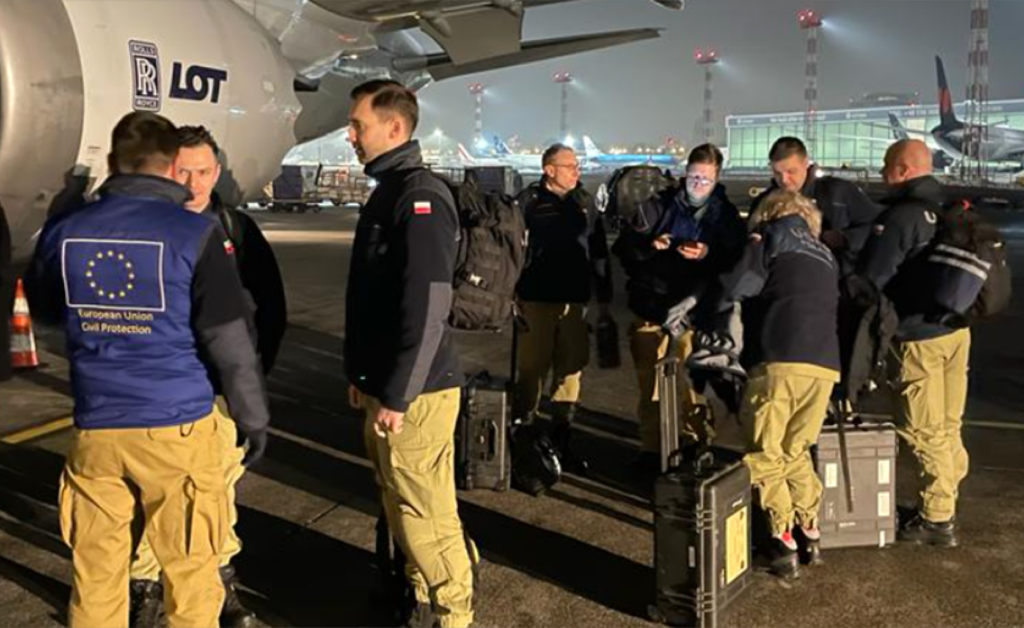The 7.8 magnitude earthquake that hit Turkey and Syria on Monday morning has already claimed 16,000 deaths while time is running out for rescuing the many people still stuck under the rubble despite a massive search and rescue operation with the support of EU and non-EU countries.
In an immediate response, the EU mobilised search and rescue teams for Turkey following its request to activate the EU Civil Protection Mechanism. Help for the victims in northern Syria was more difficult to organize because of the absence of a formal request from the government in Damaskus. The EU is instead providing emergency assistance via humanitarian partners operating in the non-government-controlled areas.
The first ten Urban Search and Rescue teams were mobilised from Bulgaria, Croatia, Czechia, France, Greece, Hungary, Malta, the Netherlands, Poland, and Romania. Italy, Spain, and Slovakia were also quick to offer their rescue teams to Turkey. Some countries were slow in offering assistance and did not know if Turkey needed medical assistance or search and rescue teams or both.
Sweden, which holds the current EU-presidency, appears to be less welcome in Turkey because of its current dispute about its NATO membership and has reportedly contributed with a number of disaster experts.
According to the latest update on Thursday, 21 EU Member States together with Albania, Montenegro and Serbia that have offered in total 38 rescue and medical teams via the EU Civil Protection Mechanism. More than 1,650 rescuers and 104 search dogs have been deployed to the most affected areas in Turkey. So far, 36 people have been rescued by the search and rescue teams deployed via the EU Mechanism.
The latest EU support includes the mobilisation of the rescEU strategic reserves to deliver 500 temporary accommodation units, 2,000 tents, and 10,500 beds to Turkey from its emergency stockpiles hosted by Sweden and Romania.
The tents can provide rapid relief, hosting 4 people each, while the prefabricated temporary housing units can host up to 5 people each and are designed to offer emergency shelter to people who lost their homes in the earthquake for a longer period. The financial value of the rescEU assistance is nearly €5 million.
Commissioner Janez Lenarcic in his role as crisis coordinator of the EU's response arrived on Thursday in Gaziantep, one of the hardest hit cities in Turkey, and will be meeting Turkish authorities and humanitarian partners from Northwest Syria. Together with the EU Civil Protection Team and the EU's Aid Office in Gaziantep, he will be visiting the disaster site and ongoing rescue operations.
Besides search and rescue teams from EU countries, other countries such as Israel, China, India, Japan, Iran and Iraq have also provided teams and other assistance.
Israel, which also felt the earthquake and finds itself in the middle of a constitutional crisis, has sent 15 air force cargo planes with emergency equipment and some 230 experts, including 150 search and rescue personnel. So far, the Israel team has pulled out 10 Turkish civilians from the rubble. Israel has also established a field hospital near the city of Kahramanmaras.
Update: On Thursday evening, Sweden sent a special rescue team with 45 persons and equipment to Turkey at the direct request of the Turkish authorities.
The Brussels Times

